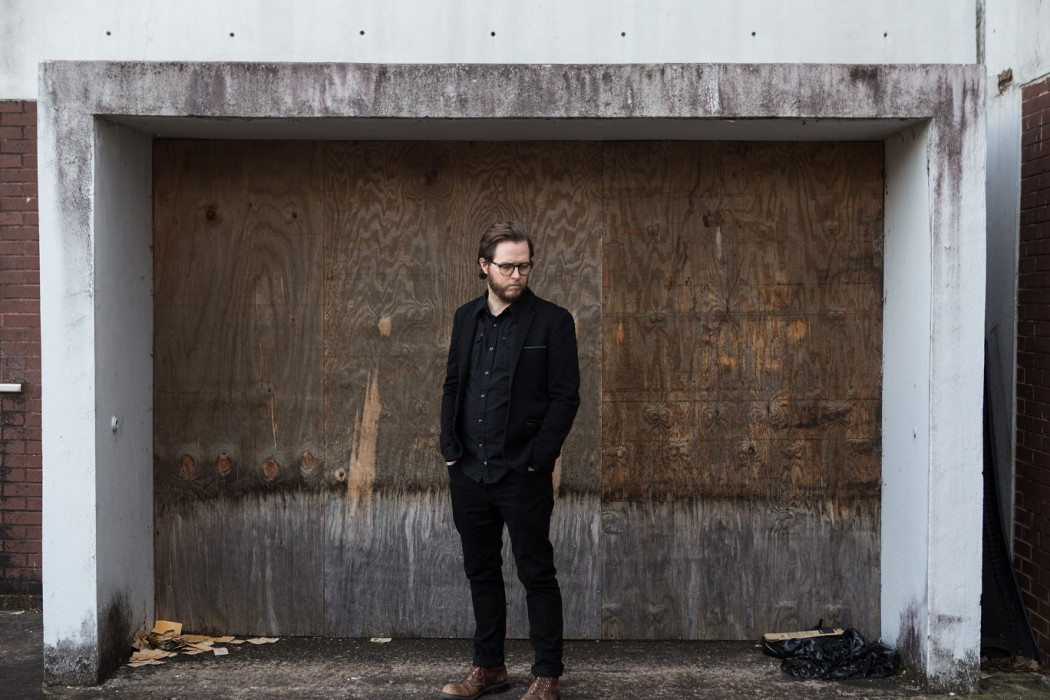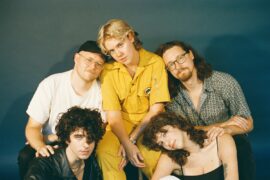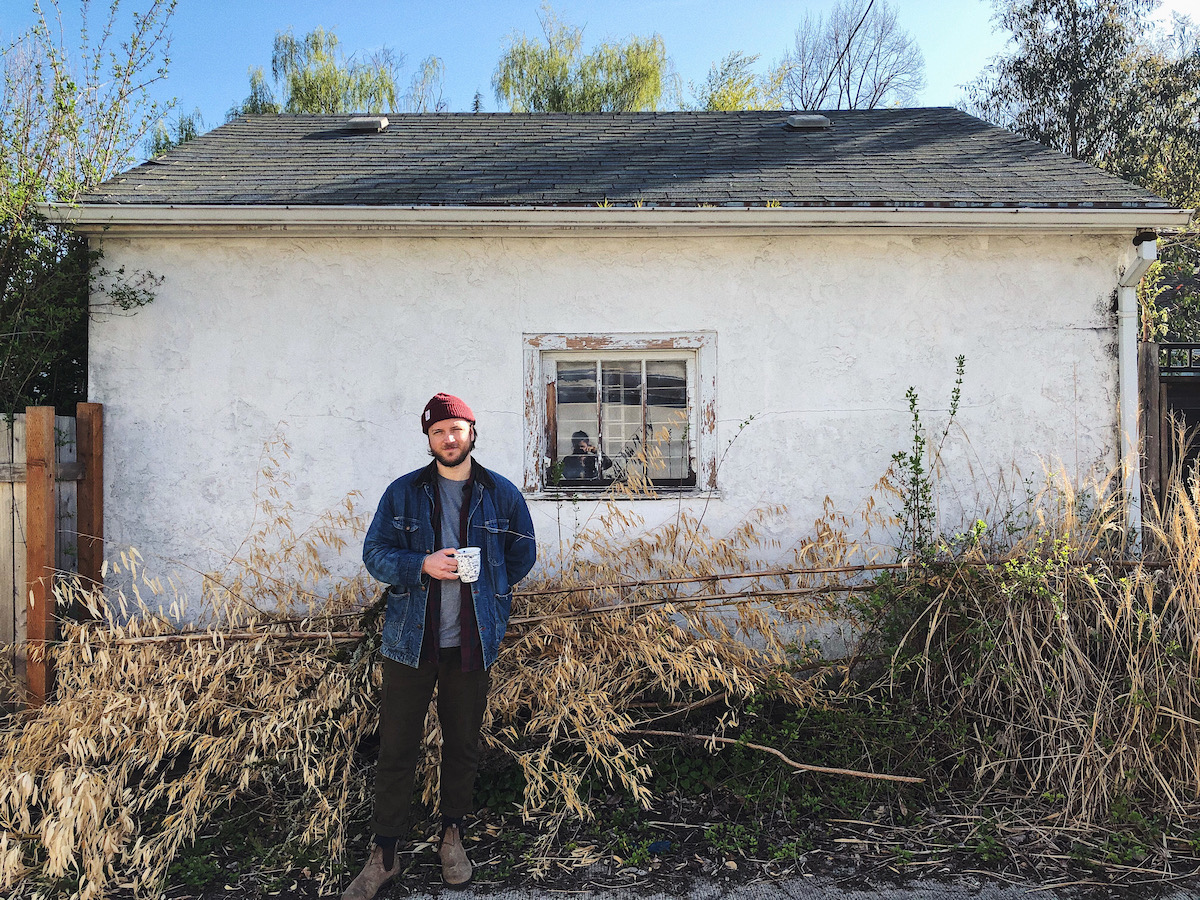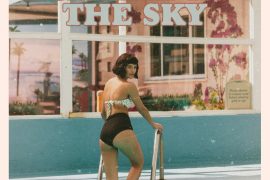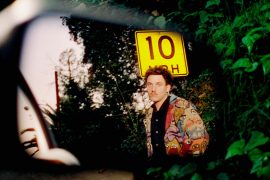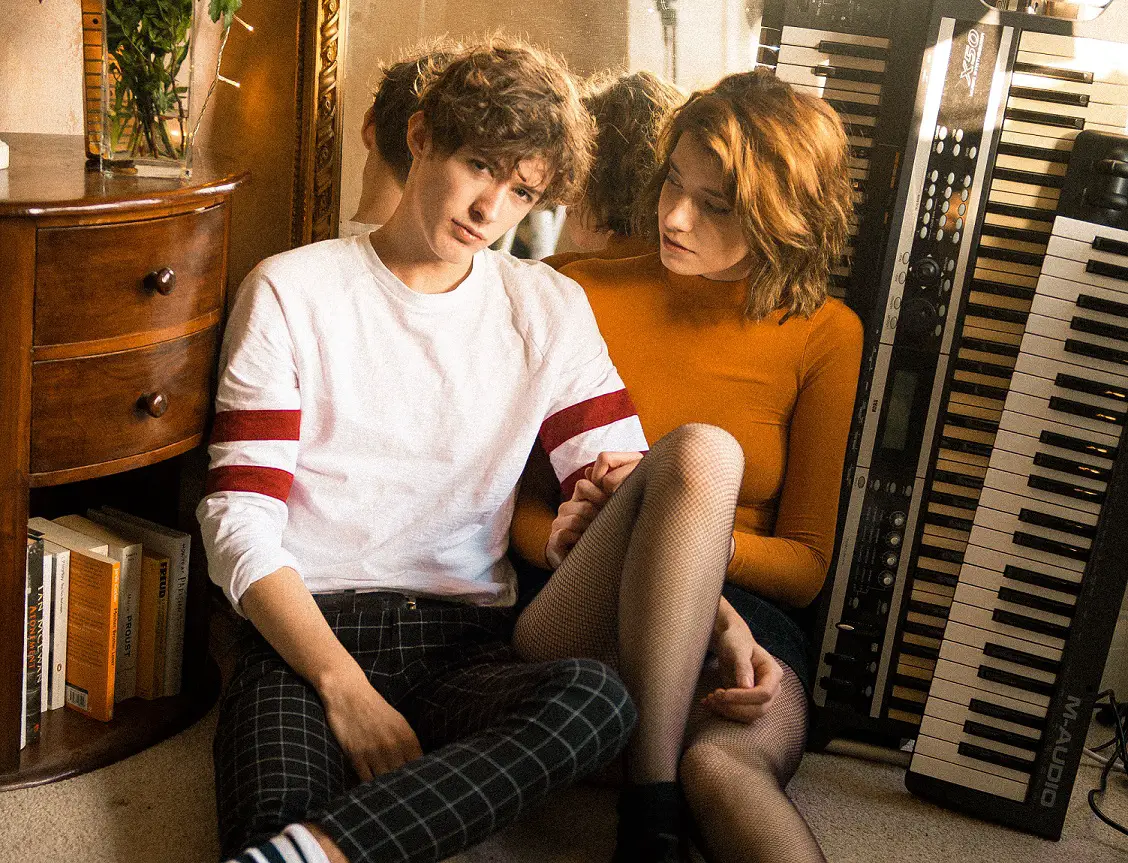Refreshingly rich and intimately evocative, The Right Regrets reflects on life’s deeper questions with a warm blanket of heavy, heartfelt folk rock.
For fans of Blind Pilot, Lord Huron, Greg Holden
— —
The Wealthy West’s sophomore album is a humble reckoning: Refreshingly rich and intimately evocative, The Right Regrets reflects on life’s deeper questions with a warm blanket of heavy, heartfelt folk rock.
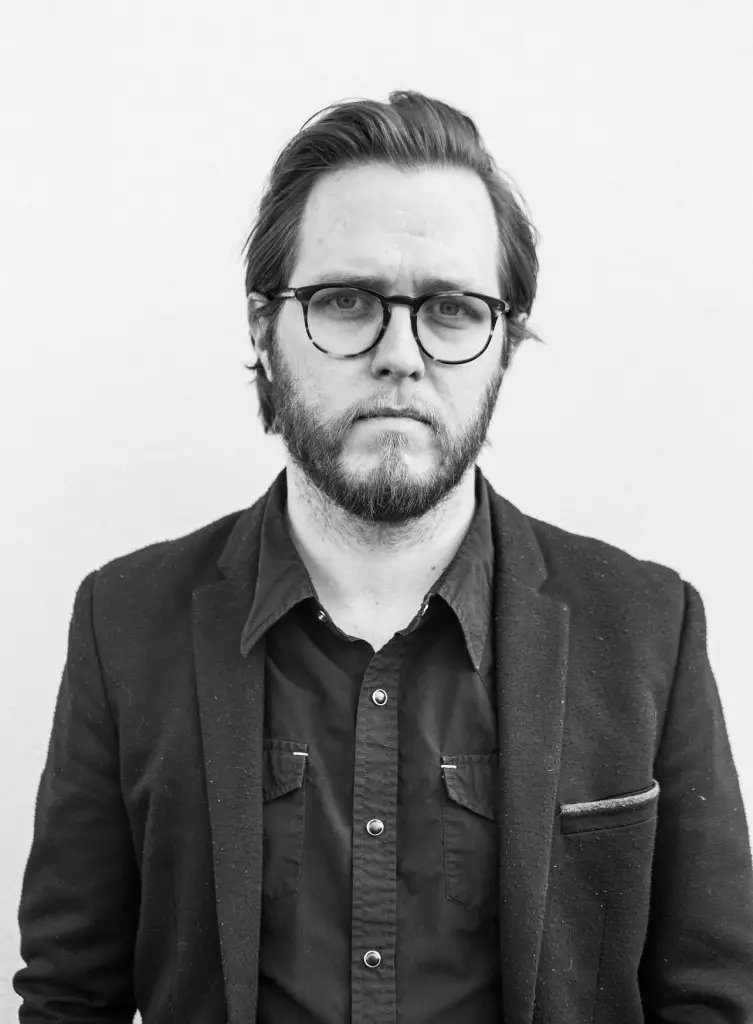
What does our existence amount to? What do we have to show for ourselves, at the end of our days? Where has the time gone, and where are we going? Are we on the right path, and is it too late to change course? How does one live under the shadow of death? Singer/songwriter Brandon Kinder (aka The Wealthy West) dives into the depths of his soul, unearthing his own humanity and exposing all of its vulnerability in a thought-provoking, vibrant set of songs.
Described by the artist as a “depressing record,” The Right Regrets takes it name from an Arthur Miller quote: “Maybe all one can do is hope to end up with the right regrets.” Haunting melodies and spine-tingling harmonies weave their way through a litany of poignant poetry: “I’m losing my ambition, like a worn out salesman,” The Wealthy West sings on the album opener’s introductory verse. “Life is never easy,” he somberly observes on “This Much Is True.” The plaintive “I’ll See You Again” finds him observing the end of one’s days with the heartwrenching line, “I didn’t get it all right, but I didn’t get it all wrong.” Regret fills the air on “Wild Eyes,” containing the lyric, “I know I said I’d meet you down the road, but I never found the right way to go.” Later on, piano ballad “Somewhere Between” struggles to comprehend these massive mysteries and more, its chorus a bittersweet confession tinged with an emotion that straddles hope and persistence: “I’m just somewhere between all of the questions and the answers I need Like a runaway dream I don’t remember, but I’m trying to…” And of course, there’s a desire for a little bit of reprieve: “I love this ocean honey, but I sure could use some land,” we hear in “Get Away.”
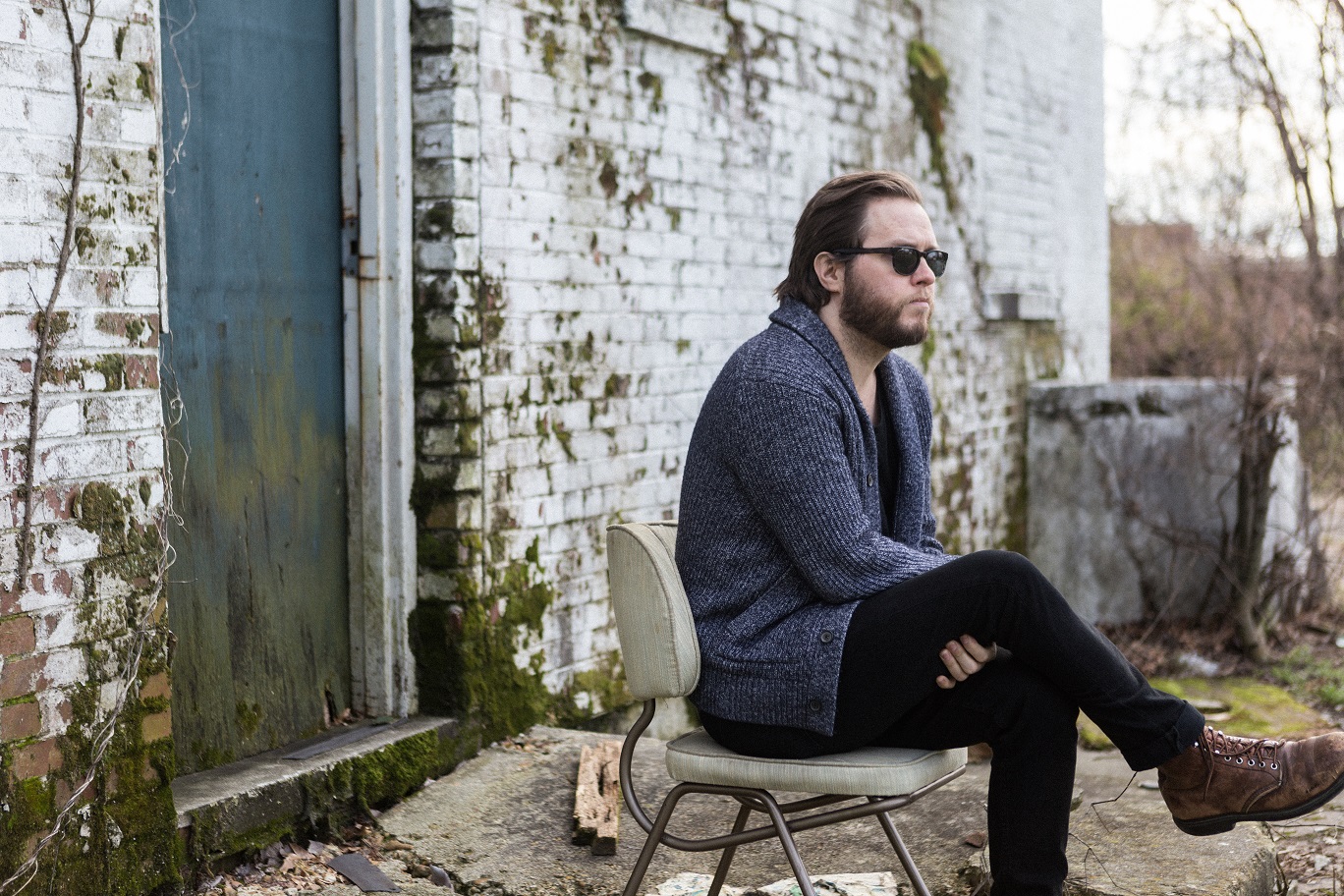
“I find that it’s easier on my heart when the world is asleep and I can just be anything I need to be,” admits Kinder in The Right Regrets‘ closer, “Smoke.” There’s a time for taking a step back from the world and plunging into introspection; The Wealthy West has dwelled in several such moments in the past few years, and the result is an inimitable record that, though dark in subject matter, still manages to shine with magnificent musical radiance.
The Wealthy West approaches his music with equal parts humility and grandeur: It’s only a matter of time before the world swoops him out of Memphis, and onto its great stage. Experience the full record now, and peek inside The Wealthy West’s The Right Regrets with Atwood Magazine as Brandon Kinder goes track-by-track through his sophomore album!
:: Inside The Right Regrets ::

— —
Wasting Time
I moved to Memphis last year, and wrote this song about 9-10 months after I got here. I think I assumed that moving to a new location would fill me up with great amounts of inspiration, but after months and months, and only a couple unfinished songs (I mean, like, hardly even started songs, like half of a verse or something) I had nothing to show for it. I don’t even know why I wrote this one. I was just messing around on a piano, and that first line “I’m losing my ambition like a worn out salesman” just came to me. That line seemed to really match what I had been feeling for so long. It’s tough to try and get by slinging t-shirts from town to town. Rarely do I want to give up, but I often question why I’m doing this. I find it impossibly hard to be honest about my emotions and feelings in real life, but for some reasons I can say more in songs; I can be more honest in lyrics. I think it’s because in a song, even though it’s my words and my melodies, there’s still a “character” involved. I don’t know, maybe I feel like that person is a bit separate from me, even in my most personal songs.
This Much Is True
I actually wrote this song about 5 or 6 years ago, maybe even more, and there have been almost as many different versions/recordings of it. I always liked this song a lot, but it never felt right on anything I’ve released. This record was kind of headed in a dark/sad direction, and finally this song felt like it had a place to go. One thing that is kind of weird to me, and doesn’t make sense “theoretically” is the piano line that is playing straight on top of the swung acoustic picking. I love when a song’s music matches the theme of the lyrics somehow; and I feel like the just slightly off/juxtaposed rhythm tells the same story, I don’t know, maybe I’m just looking for something that isn’t there, it’s a cute song though.
I’ll See You Again
I originally wrote this song to be in some sort of montage for “The Deadliest Catch.” That original recording didn’t have the outro and it was super swampy and dirty sounding. This is probably the 3rd manifestation of the song since then. I always thought it was a cool song, but just needed a different arrangement. My father-in-law passed away last year, and this song kinda took on a new meaning after that. The outro came to me afterwards, and I remember just thinking a lot about my own life and legacy, and how I want to be remembered. Originally the song was just about some guy retiring from his job, but it’s become a whole lot more. I always say it, but that’s one of the things I love the most about songwriting. This song has already meant two very specific things to me, but who knows what it’ll mean to someone else? TRIVIA: the rhythmic clicking throughout the song is actually a “master lock” being hit by a soft drum mallet.
Odd Religion
It’s been tough over the last year or so, seeing people acting so hateful. Growing up in “the church” I learned a lot about grace and compassion and love, and it’s been odd seeing the same people that taught me those sentiments not showing any of them. It’s a really interesting time right now, because I feel like I’m starting to see a lot of darkness creeping around, but maybe that’s a good thing. Maybe we need the darkness to come out so we can shine a light on it. It’s starting to feel like I have more questions than answers, but maybe that’s a good thing too. TRIVIA: Brian Douglas Phillips played the pedal steel on this track
Wild Eyes
I wrote this long paragraph about losing my friend Sunday, but I think I want to keep it vague. This song is about losing a friend, an important friend, a best friend. There’s a song on Brian Eno’s “Apollo” that sounds like what I think Heaven is going to sound like. At the end of this song, I wanted to add some sort of heavenly, musical refrain. I don’t know if I accomplished that, but that’s kinda the idea.
Help
I don’t think you have to have a happy ending in a song. It was kind of tough for me to leave this song as it is though. I always tend to want all my songs to be wrapped up all nice and pretty, and inspire great things in the listener. But I had a super shitty year, and I needed some help. There wasn’t a silver lining in sight, and the tunnel seemed to never end. So I wrote the song from there, in the middle of despair, when love looked like hate, life looked like death, and up looked like some direction none of us have even considered before. (I’m doing a little better now FYI). TRIVIA: my friend Deanda Frost did all the extra BGVS on this song and Get Away.
Underneath the Rubble
Every once in a while, I’ll get involved in a songwriting club. I’ve been in several different ones over the years, the most notable was Bob Schneider’s (NPR did a story on it a few years ago). The rules are always the same though. You get a word/phrase each week and then you have to write a song using that word or phrase. At the end of the week you turn in your song, you maybe get a little feedback, and then the thing starts over. If you miss a week, that’s ok. If you miss two weeks, you’re out. This song was born out of a club like that. Is this the only song on the album with a happy ending?
Silence
I tend to be quiet. I don’t really speak my mind much. I just kinda hold it all in, and think about things, but those thoughts usually never see the light of day. I’m mostly fine with that, but recently I was thinking about the Civil Rights movement, and I would like to be able to say that If I was around back then, I would have joined in and fought for what is right. But, I’m living now, and that stuff is still going on, so what am I doing? Is it enough for me to just sit idly by and smile at the people who are doing right, or should I speak out against those doing wrong? I think I know the answer, but I struggle to know how to do that. There are too many quotes about “good men doing nothing.”
Somewhere in Between
I originally wrote this tune on a guitar, but once it got going it seemed like piano was where it was headed. Like most of the songs I write, the first line was the first line I wrote, and once the song had some sort of direction, I started looking back through old lyrics and title ideas (I have several pages of title ideas in a google doc), and this super random title popped out “Somewhere Between the Questions and the Answers” it seemed like the perfect fit for this song. Once I had that title in place all of the rest of the words just came to me.
Get Away
This was the last song I wrote for the record. I think it’s the only song (on this album) with a joke in it. I wrote the line about joining a Rock & Roll band to be funny, kind of as a placeholder, but the more I worked on it, the more it felt right. I imagine somebody singing along and getting pumped up about maybe joining a band one day, so I kept it in there. It’s about a lot of things I guess, but mainly just needing a break. Maybe that break is just listening to a song, or going and hanging with some friends at a local haunt, or maybe it’s moving to Nebraska and changing my name and starting over. All I know is, sometimes I just need to take a break from it all.
Smoke
This song was inspired by a vocal pedal I got. I turned the delay all the way up, and just started “oohing” into it while I played some jazzy chords. The oohs started making these cool chords, because none of the notes were ever stopping. I mumbled something that kinda had the same melody as the chorus, and when I listened back to the recording, I knew it was special. Not only did my wife’s father pass away this year, but my good friend’s son died super early into his life. I just saw a lot of sadness this year, but I also watched both of them work hard through their pain, and they both brought joy to a lot of people. I was thinking about how I would react to the passing of a loved one that was that close to me, and the only thing I could think is that “You do what you have to do.” There isn’t a way to grieve that works for everybody. I took out the vocal delay thing that originally inspired the song, but I still wanted it to have a unique feel to it. There are tons of other vocal effects and weird things going on. One interesting thing is that there is a vocoder on the drums, my friend (who I mentioned above) suggested I try adding Vocoder to drums sometime, and it just so happened that I did it on the song inspired by him.
— —
:: stream/purchase The Wealthy West here ::
— — — —

Connect to The Wealthy West on
Facebook, Twitter, Instagram
Discover new music on Atwood Magazine
? © Stefanie Rawlinson

